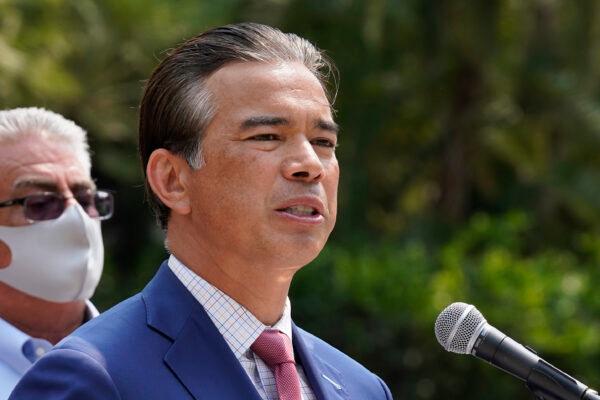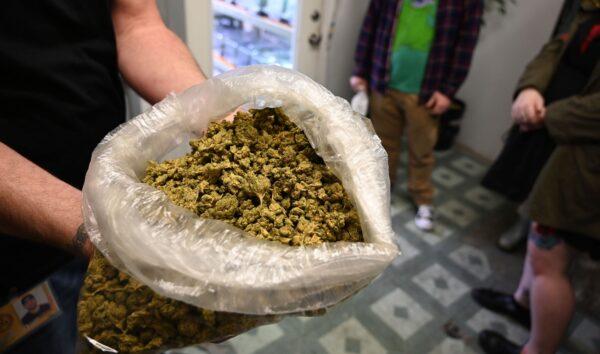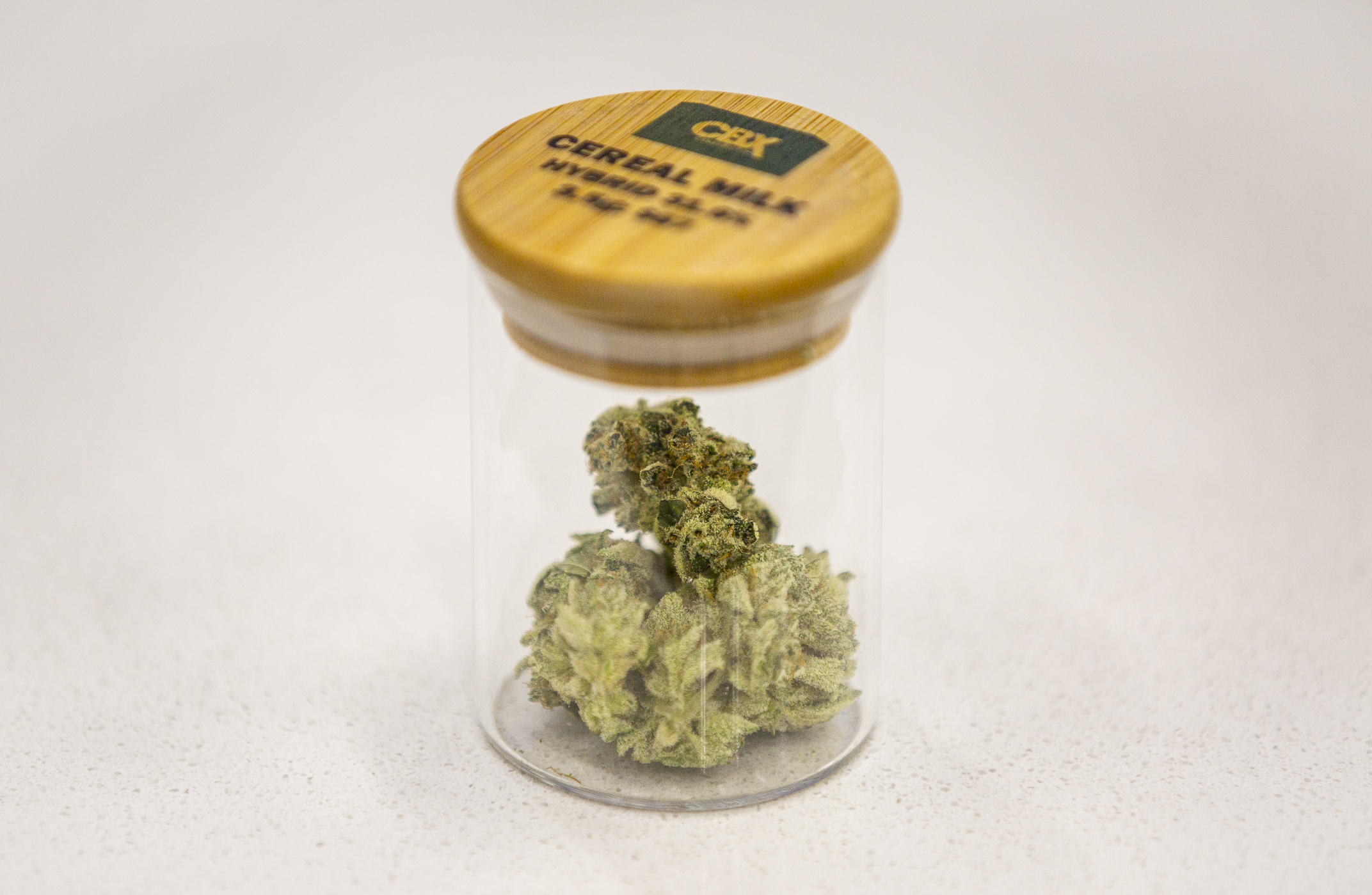In what some describe as another blow to a struggling industry, California Attorney General Rob Bonta issued an opinion on Dec. 19, 2023, declaring that interstate cannabis trade would be detrimental to the state because of the risk of federal litigation.
“We believe that relevant legal risks include the possibility that California’s laws authorizing interstate cannabis activities could be deemed preempted by the Controlled Substances Act,” the opinion reads. “In our view, such a result would constitute an ‘adverse or unwelcome circumstance’ for the State.”
The 36-page document is in response to a request by the state’s Department of Cannabis Control to evaluate the impact of implementing a bill signed into law in 2022.
At issue is Senate Bill 1326, authored by Sen. Anna Caballero (D-Salinas) to allow agreements between states to expand market access for licensed cannabis producers.
Conditions of the law limit full implementation until federal policy changes or the attorney general issues a finding that there’s no significant legal risk to the state.
Though legal in 24 states and allowed in some form in 46 states, federal laws strictly prohibit the production, transport, and distribution of cannabis. The drug’s Schedule 1 categorization under the Controlled Substances Act—passed in 1970 and signed by then-President Richard Nixon—outlaws the substance while defining it as having “no medicinal value.”
Such presents the potential for legal and criminal action against state employees involved in any cannabis licensing or authorization programs—an issue that could complicate hiring and prove costly to the state—according to the attorney general.
“The State’s ability to implement SB 1326 and retain a workforce could be chilled and undermined if necessary state personnel faced federal prison sentences for doing their jobs,” the opinion reads. “The State might also expend resources defending its employees against criminal charges.”

California Attorney General Rob Bonta speaks at a news conference in Sacramento, Calif., on Aug. 17, 2021. (Rich Pedroncelli/AP Photo)
While federal authorities have allowed states to operate licensed cannabis markets, Mr. Bonta is concerned that the prospect of interstate commerce could invite legal action.
“It remains possible that the federal government might view interstate cannabis distribution as posing a greater threat to federal priorities than existing intrastate activities,” he wrote. “Interstate sales might be seen, for example, to create a larger risk of diversion to neighboring States, or to have a greater potential impact on national markets.”
Uncertainty exists, according to Mr. Bonta, because no court has considered the matter of interstate agreements or whether state employees could face federal prosecution.
“The fact that no court has yet considered preemption in the interstate context only further increases the risk here, as the validity of laws like SB 1326 remains untested,” Mr. Bonta wrote.
Federal Lawmakers Seek Solutions
Acknowledging the complex legal conundrum facing cannabis businesses, members of Congress introduced on Dec. 7, 2023, a new version of a bill designed to allow for the interstate commerce of cannabis products.
House Resolution 6673, titled the Strengthening the Tenth Amendment Through Entrusting States Act—also known as STATES 2.0, as an earlier version was introduced in 2018 but failed to pass—seeks to follow through on the 10th Amendment’s guarantee that any powers not delegated to the federal government by the Constitution are reserved to the states.
Change at the federal level is needed to address an evolving business environment, according to the bill’s author, Rep. David Joyce (R-Ohio).
“The current federal approach to cannabis policy infringes on the rights of states to implement their own laws, stifling critical medical research, hurting legitimate businesses, and diverting vital law enforcement resources needed elsewhere,” Mr. Joyce said in a statement to announce the bill. “This bill respects the will of the states that have legalized cannabis in some form and allows them to implement their own policies without fear of repercussion from the federal government.”
Supporters of the measure argue that the intent is to align policies at the state and federal levels—suggesting that the current arrangement is failing to stop illicit trade while preventing legal business from being conducted.
“Whether you are pro-legalization or anti-legalization, we can all acknowledge the current federal posture of having its head in the sand is not working,” Andrew Freedman, executive director of the Coalition for Cannabis Policy, Education, and Regulation, said in a Dec. 7, 2023, statement. “This legislation does not aim to open new cannabis markets. Instead, it simply aligns federal policy with state policy so that existing cannabis markets are safer, and federal efforts can be focused on keeping cannabis out of states where it remains illegal.”

Marijuana grows at an indoor cannabis farm in Gardena, Calif., on Aug. 15, 2019. (Richard Vogel/AP Photo)
If passed, the bill would empower states to regulate activities by removing cannabis from the controlled substances schedule.
Such is needed because illicit trade accounts for at least 75 percent of the market nationwide and could be better addressed with federal regulations, according to the text of the bill.
“While states have the power to determine what happens within their own borders, they cannot make laws permitting or restricting interstate commerce unilaterally,” the act reads. “In the absence of federal movement, the illicit interstate trade in cannabis has persisted even in the face of significant state policy changes.”
The measure would also exempt businesses from a tax law that disallows deductions for expenses and leaves companies subject to tax liabilities on gross revenues.
A combination of laws that restrict normal banking and business accounting, overregulation, and overproduction is plaguing the state’s legal market, according to experts who say businesses are looking to export products in hopes of boosting revenues.
“Excessive taxation in licensed markets has caused the price of legal marijuana products to exceed that of illegal products by two to three times, contributing to the growth of the illicit market,” the resolution reads. “Because of federal restrictions on marijuana activities, marijuana is currently regulated by a punitive tax structure that harms the ability of licensed operators to sell ... products, discourages new business creation and growth, and perpetuates illicit markets.”
California Cannabis Market Crash
Growers in Northern California agree, with several licensed operators telling The Epoch Times that business has slowed to a crawl in what some are calling an “extinction-level event.”
Many say they are left with no option but to offload inventory to unlicensed buyers in order to make ends meet.
“It’s an open secret that everybody is breaking the law to survive,” one licensed grower who asked for anonymity said. “From the farms to the shops, it’s been like this for years.”
While dispensaries around the state are selling product at retail prices that equate to thousands of dollars per pound, overproduction resulted in wholesale prices offered at as low as $200 to $300 per pound for fresh product in December 2023.
The price disparity has left the licensed industry reeling while the illicit market thrives, according to industry experts, as many cannabis consumers are choosing tax-free options regardless of legal status.
Though about 2.4 million pounds are sold through the state’s licensed markets annually, production in 2023 stood at more than 16 million pounds, according to HdL Companies, an analysis firm that provides statistics utilized by government agencies.
As a result, approximately 70 percent of legal businesses are expected to fail, based on the gap between supply and demand, according to HdL.
Stakeholders are concerned that such widespread failure will negatively affect local communities that rely on the industry to supply jobs and tax revenue.
“The cannabis industry is experiencing overproduction and a steep drop in prices, oversaturation of products, and cannabis businesses struggling to survive,” the Rural County Representatives of California, a public policy group founded in 1972 to advocate for rural communities, wrote in support of the state law in question.

A bag of marijuana in Los Angeles on Jan. 24, 2019. (Robyn Beck//AFP via Getty Images)
Proponents argue that barring the ability to export to other states, the industry is in jeopardy of failing.
“Without considerable market expansion as part of the solution to stabilize the legal industry and incentivize participation in the regulated market, California risks the collapse of portions of the legal industry, particularly for rural producing regions, which could lead to considerable expansion of the illicit market and dire economic impacts to local economies,” the rural county representatives wrote.
In legislative analyses, consultants said that California has a reputation for high-quality cannabis and should allow exports and take advantage of the opportunity to market products in the same way that wineries have established brands.
“Maintaining origins of appellation is critical for the California cannabis market to obtain their branding efforts,” the Assembly analysis reads.
While the attorney general acknowledged the industry’s predicament in his opinion, the risk of federal prosecution and high levels of uncertainty regarding legal liability for state employees resulted in his decision that interstate commerce is not advisable.
With lawmakers at state and federal levels debating how best to proceed, Americans are increasingly in favor of change, according to a recently released Gallup poll that revealed that 70 percent of respondents believe that cannabis should be legal.














